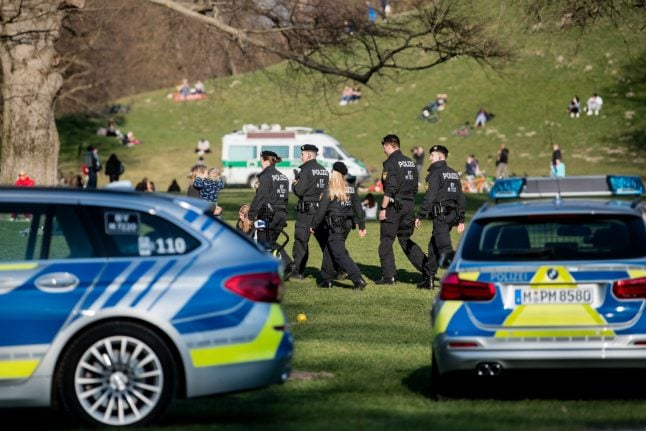Klaus Reinhardt said medical officials were already stretched in their work trying to control the spread of coronavirus in Germany.
“Medical officers are working to full capacity to trace chains of infection and initiate quarantine measures,” Reinhardt told DPA.
“The monitoring and sanctioning of these measures must be taken over by others, for example the police and public order offices.”
Angela Merkel urged authorities on Thursday August 27th to step up controls to ensure people adhere to quarantine rules as part of the government's new strategy on how it deals with travel.
Germany had earlier this month introduced free mandatory tests for travellers returning from high-risk areas and free voluntary tests for those coming back from elsewhere.
But the government now plans to scrap free tests for those returning from non-risk areas from September 15th, and to introduce stricter quarantine rules for those returning from risk areas.
From October 1st, those returning to Germany from a risk area will have to go into quarantine at home for at least five days before taking a test. Only if they then test negative can they be released early from the 14-day quarantine.
READ ALSO: Merkel calls on Germans to avoid travel to risk areas
Health Minister Jens Spahn had earlier this week called for mandatory tests to be scrapped after summer, with a focus on quarantine instead.
Reinhardt said ending free voluntary tests for people returning from non-risk areas was the right move in view of the finite resources available.
He also called for rapid tests, like those being used in the UK, to be introduced.
“The test strategy of the federal and state governments should also increasingly focus on rapid tests in addition to tests on specific occasions,” Reinhardt said.
These tests deliver a result after about 90 minutes, while other types of tests can take several days. “Doctors can advise patients directly in their practices or test stations and arrange for appropriate quarantine measures,” he said.
READ ALSO: Explained – How Germany plans to step up measures to control coronavirus spread
'Federal patchwork quilt confuses people'
Due to Germany's federal system, each of the country's 16 states has the right to impose its own coronavirus regulations, leading to a patchwork of rules which many say has been confusing throughout the crisis.
Reinhardt welcomed the federal and state governments' action to partially standardise their anti-coronavirus strategy. “Otherwise there is a threat of a federal patchwork quilt that will confuse people,” he said.
READ ALSO: Coronavirus – Five things to look out for in Germany this autumn
He added that differing reporting structures and quarantine rules from community to community doesn't help with the “acceptance of prevention measures”.
Reinhardt called for “much more coordinated and concerted decision-making and information structures in the public health service nationwide”.



 Please whitelist us to continue reading.
Please whitelist us to continue reading.
Member comments